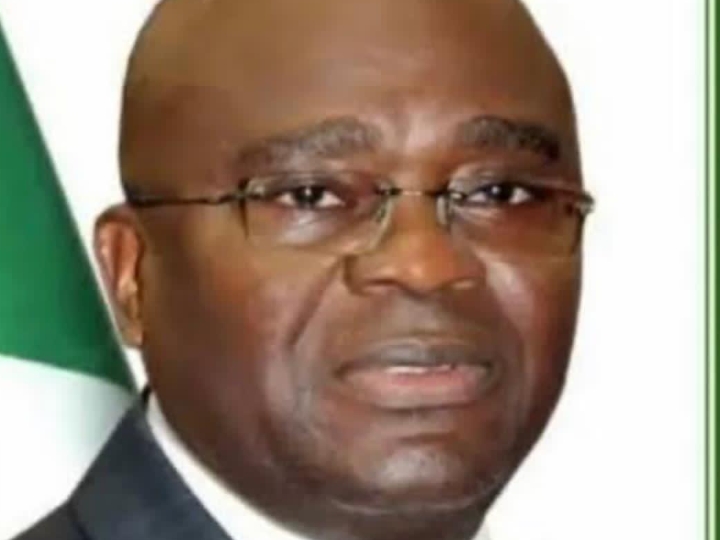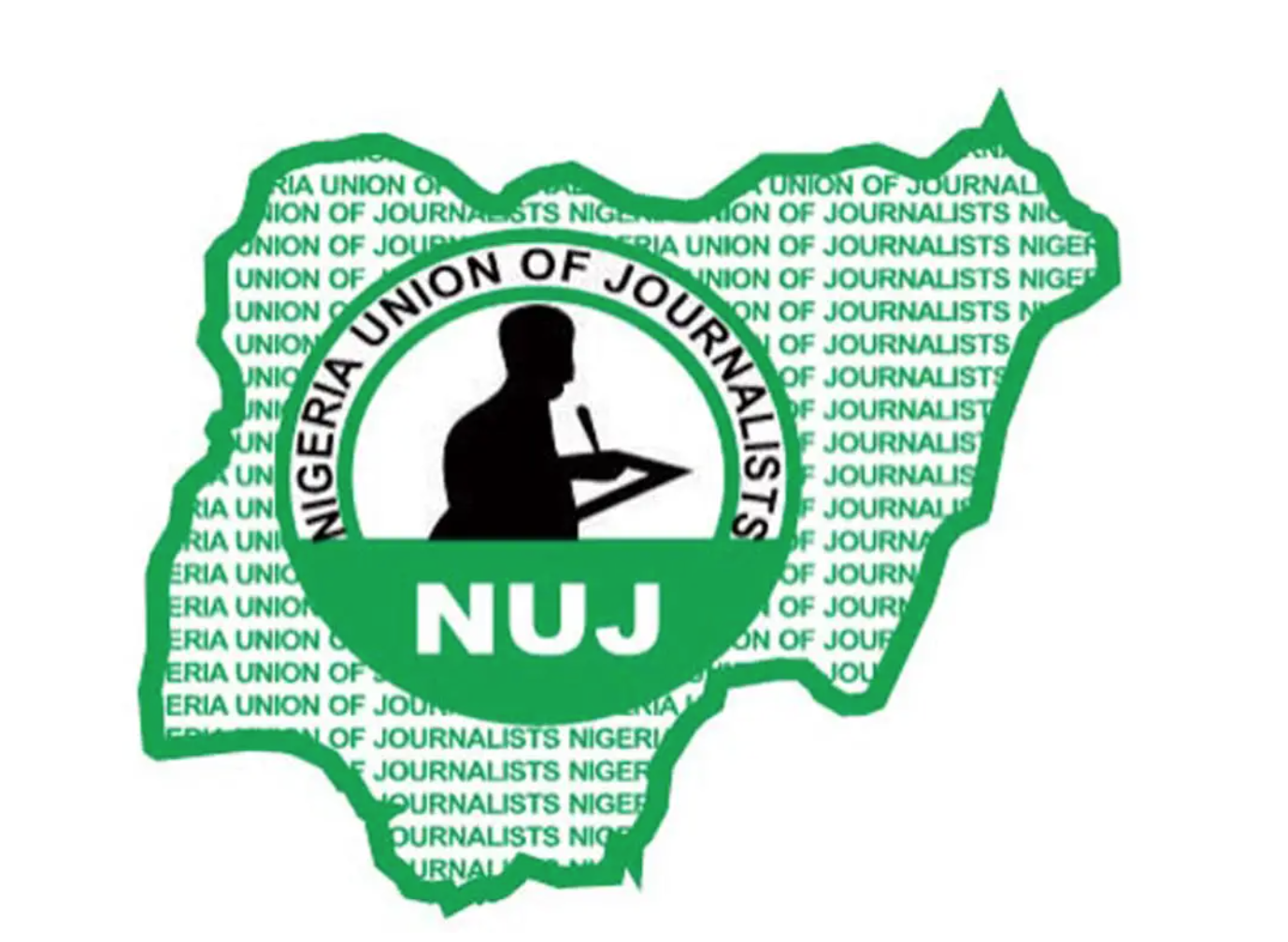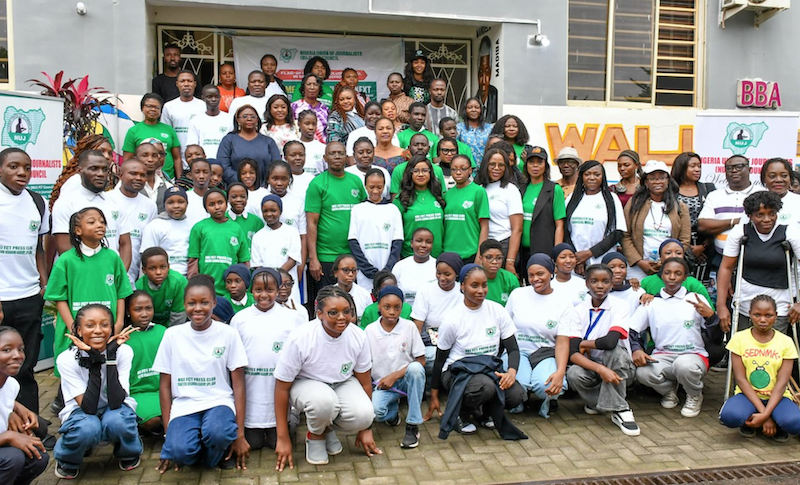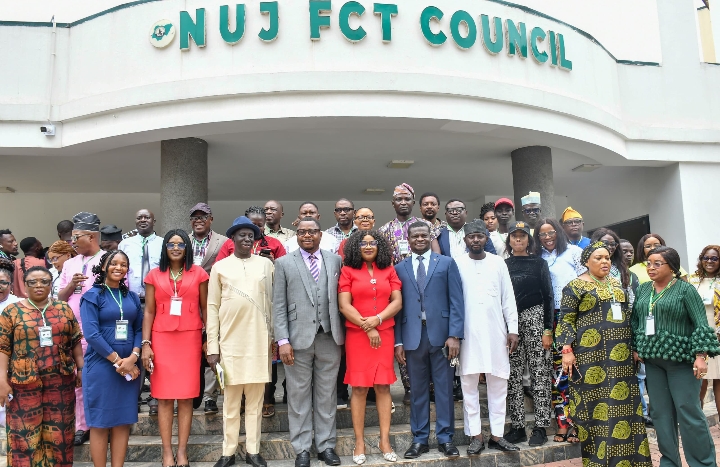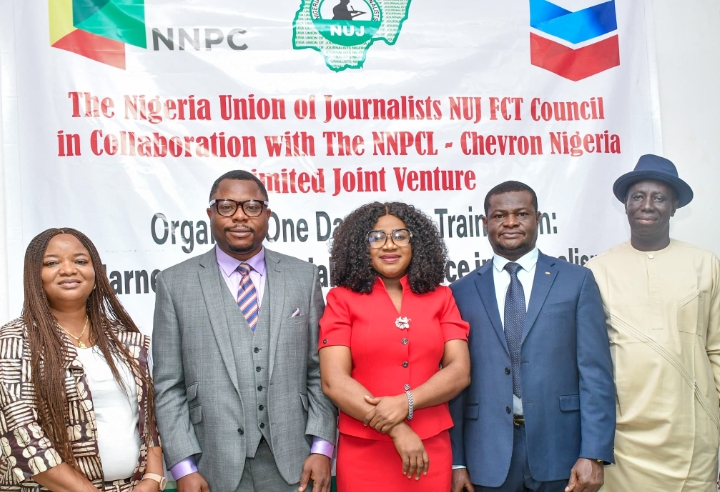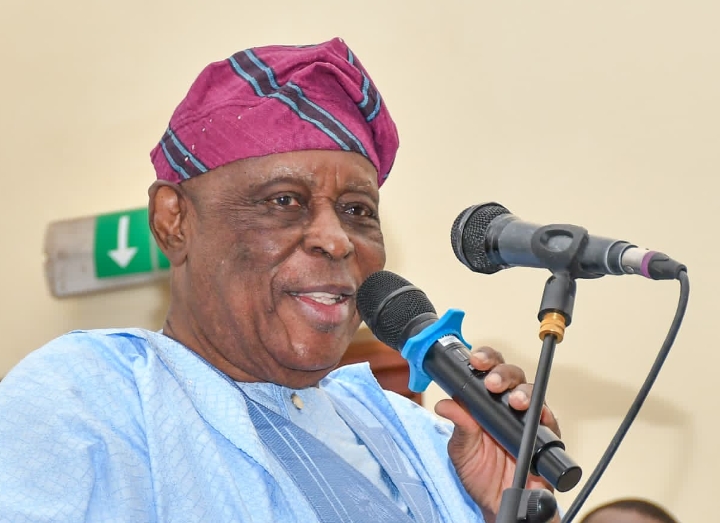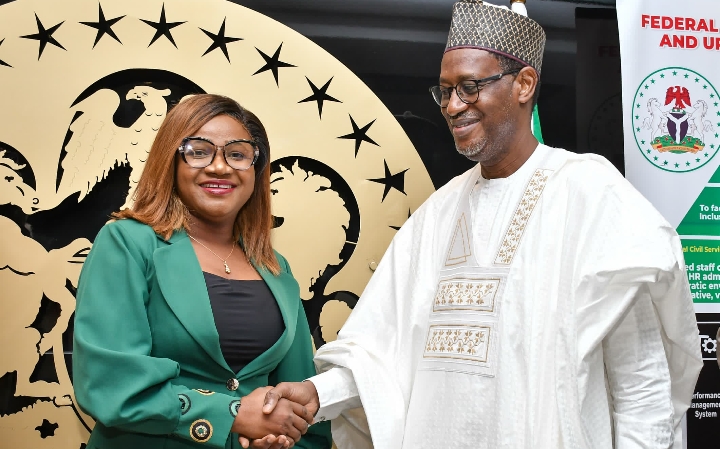Comrade Jide Oyekule, Secretary of the FCT Council of the Nigeria Union of Journalists (NUJ), on Saturday, laid his late father, Pa. Samuel Ayanlola Oyekunle, to rest.
TheNewsGuru (TNG) reports Pa. Oyekule, who passed away on 20th March, 2025, was buried at Oyekunle’s House, Oke Oremoje Custom Area in Iseyin, Oyo State.
“Though he is no longer with us in person, his spirit continues to inspire and comfort us. We cherish the memories we shared and the lessons he imparted,” Comrade Jide stated in a tribute to his late father.
In his biography obtained by TNG, the late Pa. Oyekule, a professional photographer, was fondly referred to by some of his friends and professional colleagues as “Akunle”.
He was the leader of the Professional Photographers and Video Association in Iseyin town, Oyo State, and across Nigeria.
According to the biography, he was the first son of an Oke-Ogun professional photographer to become the Deputy of the Nigeria Professional Photographer and Video Association (NPPVA), Oyo State.
“He was also an active member of the Million Dollars Society-now Fiwasaye Society of Ilua town, a group that promotes the unity, progress, and good image of Ilua citizens worldwide.
“He served the NPPVA meritoriously in various capacities for forty-eight (48) years. To his many admirers, he was an iconic professional, a peaceful man, a devoted Baptist, and a member of the Ebenezer Society in Oluwole Baptist Church, Iseyin.
“”Akunlee” was a friend to the elite and prominent figures across Nigeria.
“Pa. Samuel Ayanlola Oyekunle passed away on Thursday, March 20, 2025 after a brief illness and receiving treatment at a private hospital, Oluyoro Specialist Hospital, Ibadan.
“He was discharged in good health and continued coordinating several meetings with family and friends until the night of Wednesday, march 19th, 2025,” the biography reads.
It was gathered that Pa. Oyekunle had three wives: Mrs. Christiana Olutayo, Mrs. Rachael Folasade, and Mrs. Esther Oluwayemisi Oyekunle. He is survived by wife, children, grandchildren, a caring brother and sister and many other loved ones.
Samuel Ayanlola Oyekunle was born in Ile-Abese, Abese Compound, Ilua town, Kajola Local Government Area, Oyo State, Nigeria, on October 27, 1949.
His father was Pa. Amos Osinkunle Akano, a member of Ibukun Oluwa Baptist Church, Ilua, and the son of Papa Olaleye Iyanda Agbo of the Abese Compound in Ilua.
His mother, Sarah Egunyoyin Ayinbo, was the daughter of the Onilua (king) of Ilua town, making them descendants of Iku Baba Yeye, the Alaafin of Oyo kingdom.
Samuel Ayanlola, also known as “Alenu ma jata,” attended Baptist Day School in Ilua town from 1955 to 1960 and earned his Primary School Leaving Certificate.
He was the first child of his mother. Due to his parents’ financial constraints, he moved to the city without knowing anyone.
While in Ilua, he was inspired by secretariat officials who visited from the city to take student photographs. This early exposure sparked his desire to become a photographer.
With his parents’ permission, he relocated to Ibadan and joined Sunlay Photo on Salvation Army Road, where he trained for a year.
Following the death of his trainer in a motor accident, he moved to “Assaf Photo Art Studio,” owned by a white British man, on Lebanon Street, Oke-Paadi Area, Ibadan.
He worked there from 1962 until October 31st, 1965, alongside others like Niyi Photo and Wolas Photo of Igbeti.
“They all graduated together and started their own studios by December 31st, 1965.
“Unsatisfied with the quality of camera equipment he was using, he worked with Nigeria Tobacco Company (now BAT) from 1966 to 1968 to save money.
“In November 1968, two significant events occurred: the passing of his father and the acquisition of his first professional camera with a Kongo lens, along with a motorbike for mobility.
“He briefly operated in Okeho before settling in Iseyin in October 1969. He lived with Mr. Muraina Dele Ajuwon, a teacher from Ilua, who accommodated him out of familial bond. “Omu kann alajo muu.” the biography reads.
According to the biography, on January 1st, 1970, his vision was realized. The drummer boy of the Abese compound and the handsome son of the Onilua of Ilua town officially launched his photography studio at Gbagbonmi Compound, Oke-Oja Area, P.O. Box 28, Iseyin.
Originally called Kunle Photo International Studio, it was later renamed OYEKUNLE & SONS PHOTO VIDEO PRODUCTION, as all his children became active participants in the family business.
His work had a strong impact throughout Iseyin and the Oke-Ogun area.
He was closely associated with prominent figures, including HRM late Oba Adeyeri Moshood Osuolale Aseyin of Iseyin-Land, late Chief James Ojewumi (former NURTW Oyo State Chairman & National Treasurer), late Prof. Moshood Abiola Peller (magician), Alhaji Kunmi Mustapha (former PDP State Chairman), Fulani, Hausa and many others across diverse sectors.
He brought a fresh, creative, and disciplined approach to photography.
Through OYEKUNLE & SONS, he trained 85 certified professional photographers and 25 indirectly mentored professionals, now working peacefully across Nigeria and globally.
He was an accomplished professional icon, an educated and exposed elite who used his skills to empower the less privileged and improve society through photography.
“The church (Oluwole Baptist Church) once testified that shortly before his passing, he had called Rev. Dr. R.O. Bolaji to discuss his tithe payment as usual, a reflection of his unwavering faith and consistency,” the biography read.
He received the 2024 Men’s Missionary Union Award from Oluwole Baptist Church, along with numerous awards from various professional bodies and the church.
“Pa. Samuel Ayanlola Oyekunle was a man of many parts: gifted, intelligent, principled. and rich in historical and cultural knowledge as a true Omo Ayan (a drummer’s child) and a proud son of Ilua.
“Always neatly dressed, he was a rare gem in the photography world, a seasoned administrator, a committed and fearless leader, and a steadfast Christian. He was a loving husband and a devoted father,” the biography added.
